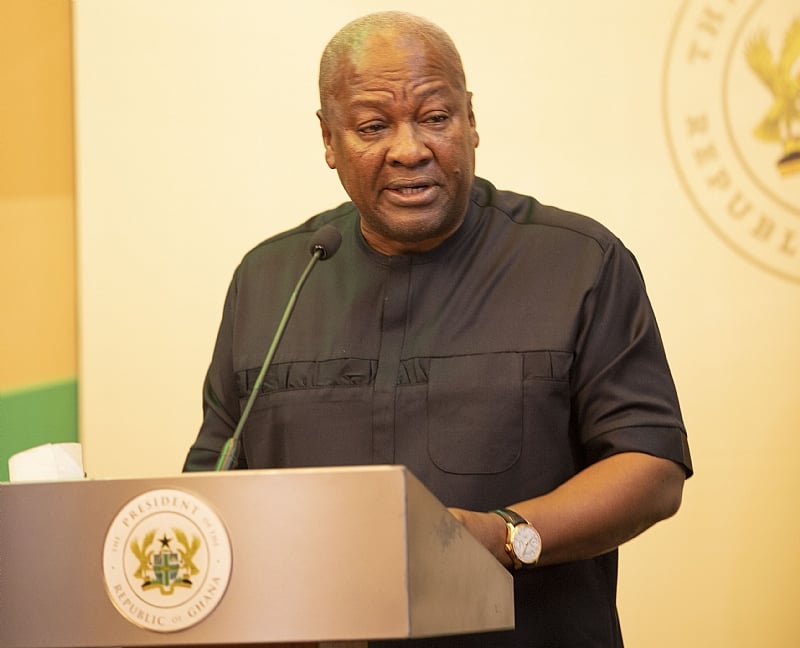President John Dramani Mahama of Ghana has unequivocally rejected apprehensions about the potential misuse of his party’s two-thirds parliamentary majority, dismissing suggestions that it could pave the way for authoritarian rule. These concerns, voiced by certain political analysts, stem from the National Democratic Congress (NDC)’s dominant position in Parliament, raising fears of a possible weakening of checks and balances and an undermining of Ghana’s democratic framework. The recent removal of Chief Justice Gertrude Torkonoo further fueled these anxieties, adding to the perception of a potential power imbalance. However, in his first media engagement since returning to office, President Mahama addressed these concerns head-on, offering reassurances of his unwavering commitment to democratic principles and constitutional adherence. He directly challenged the notion of his becoming an authoritarian figure, emphasizing his democratic credentials and rejecting any intent to use the parliamentary majority to suppress the minority.
President Mahama articulated his vision for utilizing the NDC’s significant parliamentary presence constructively, focusing on enacting reforms long desired by the Ghanaian populace. He highlighted the opportunity to address constitutional amendments that have been stalled due to previous hung parliaments, emphasizing the potential for positive change enabled by the current political landscape. He underscored that the overwhelming mandate received from the Ghanaian electorate was not an endorsement of dictatorial tendencies but rather an expression of trust in the NDC’s capacity to implement reforms that would enhance governance. This mandate, he argued, is a call to strengthen democratic institutions and processes, not to dismantle them.
The President outlined his administration’s intention to leverage the supermajority in Parliament to advance crucial constitutional amendments aimed at fortifying Ghana’s democracy for future generations. He reiterated his personal commitment to democratic values, distancing himself from any aspirations towards supreme leadership or autocracy. His message emphasized a commitment to utilizing the parliamentary advantage responsibly and for the benefit of the nation.
President Mahama’s response to these concerns provides a crucial insight into his administration’s approach to governance. He aims to dispel anxieties about the potential for power abuse by emphasizing a commitment to democratic principles and outlining a clear agenda for utilizing the parliamentary majority to implement beneficial reforms. The focus on constitutional amendments suggests a desire to strengthen, rather than weaken, democratic checks and balances, potentially addressing the underlying concerns about power concentration. His direct and personal rejection of authoritarian tendencies reinforces his commitment to maintaining a democratic framework.
The President’s focus on long-stalled reforms indicates a strategic approach to governance, prioritizing issues that have previously been hampered by political gridlock. This suggests a desire to capitalize on the current political environment to enact meaningful change. By emphasizing constitutional amendments, the administration signals a commitment to long-term democratic strengthening, aiming to establish a more robust and resilient democratic framework. This commitment to reform aligns with the expressed desire to utilize the parliamentary majority for the benefit of the nation.
In conclusion, President Mahama’s response to concerns about potential authoritarianism seeks to reassure the public about his administration’s commitment to democratic governance. He frames the two-thirds parliamentary majority not as a tool for power consolidation but as a means to enact crucial reforms and constitutional amendments that will strengthen Ghana’s democracy for the future. This approach emphasizes responsible governance, prioritizing the needs of the nation and aiming to build a more resilient and effective democratic system. The President’s direct and personal rejection of autocratic tendencies serves to reinforce this message, emphasizing his commitment to upholding democratic principles and practices.














